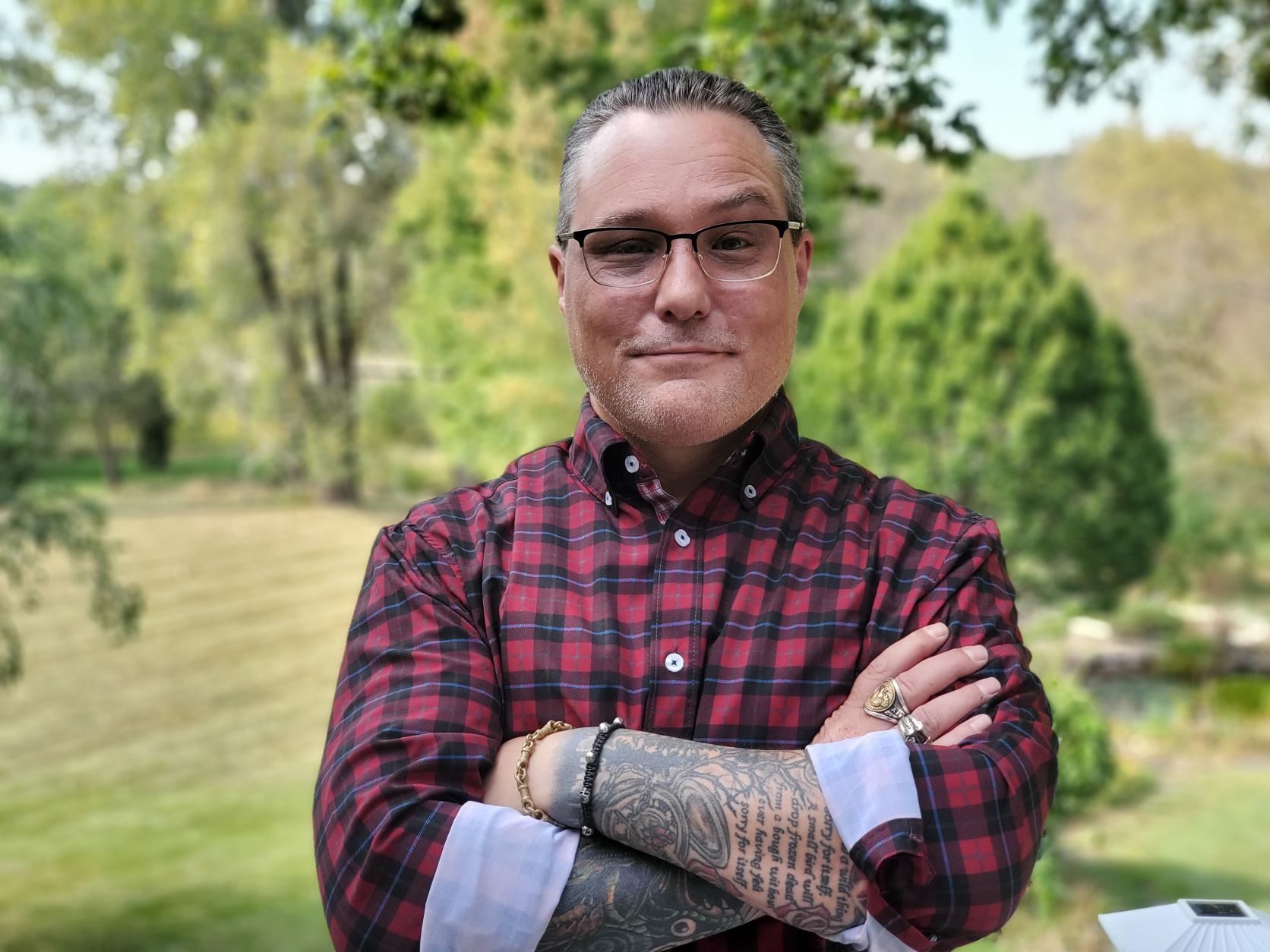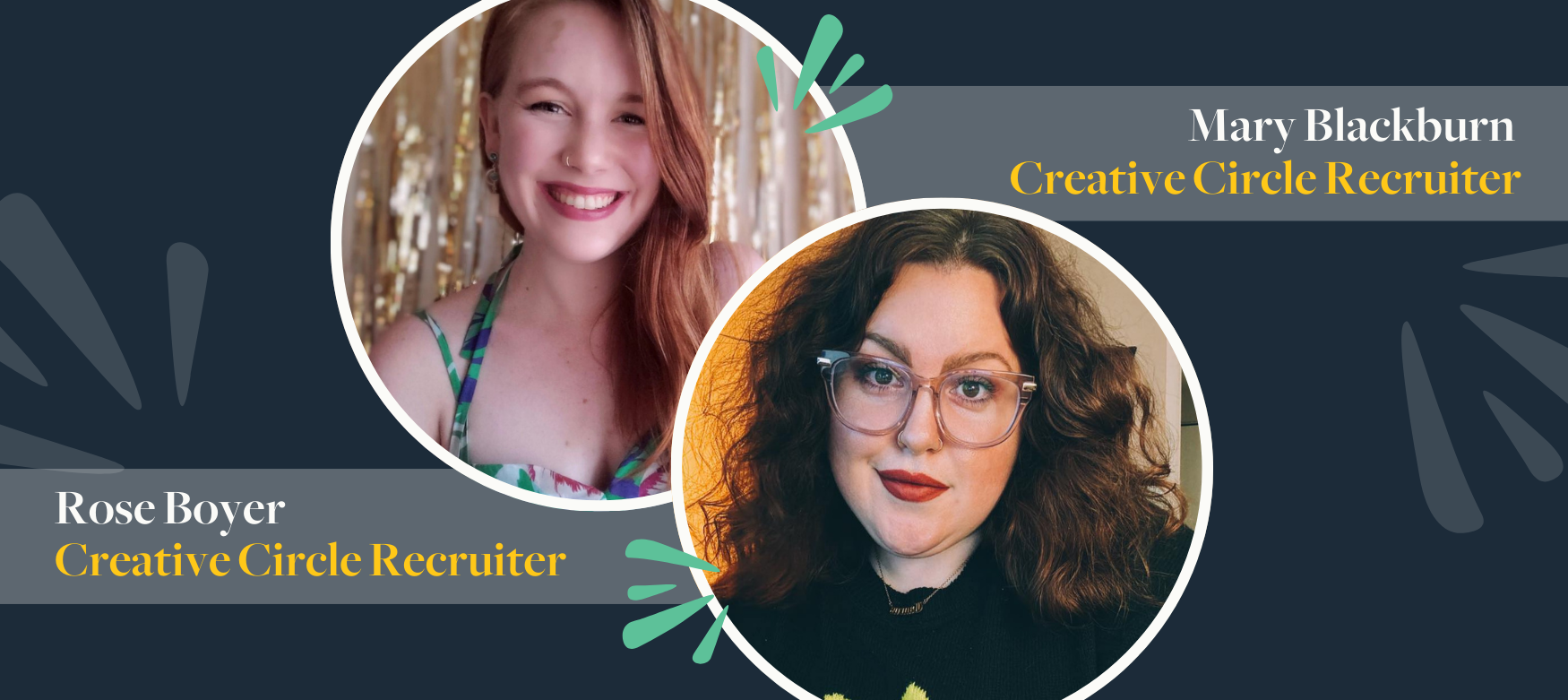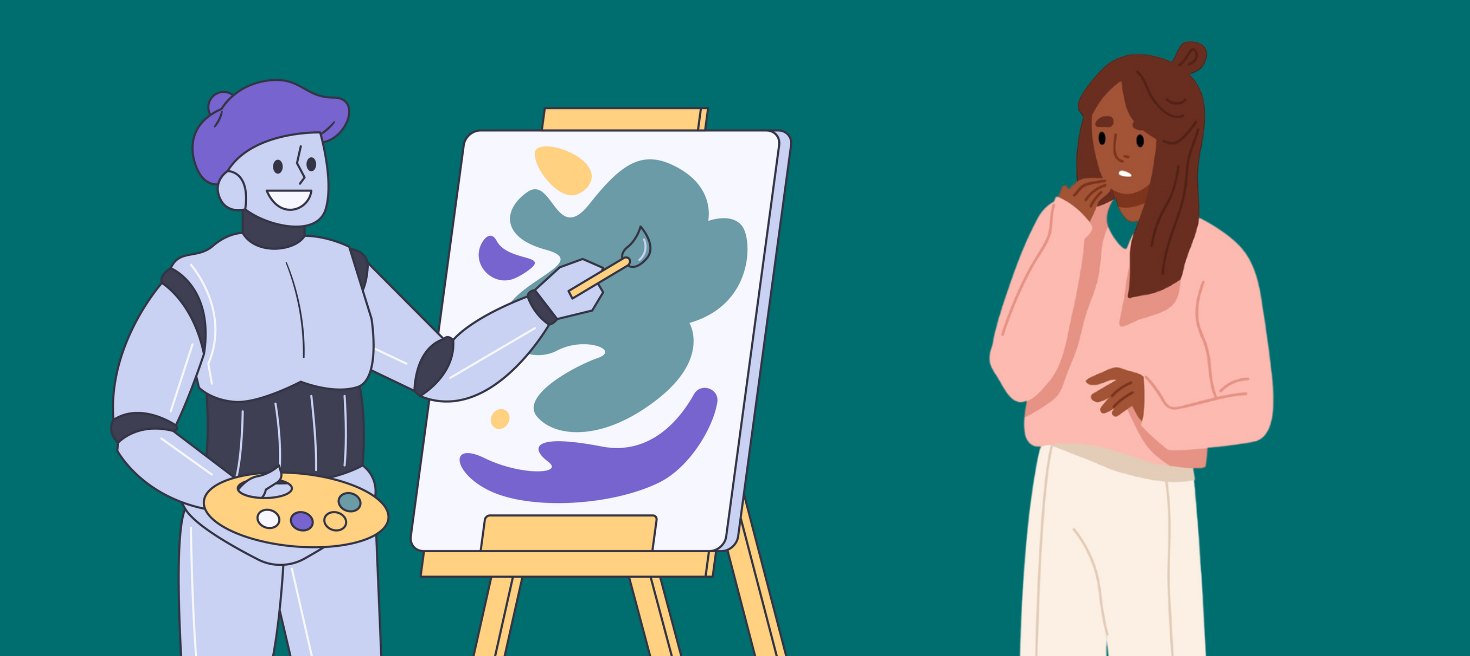This month will mark 12 years, for me, as a Creative Circle Candidate. I am immensely proud of this benchmark, as it makes me the longest-serving candidate in Creative Circle history. I’ve been sent out as the “wolf” on multiple occasions. I can say that I’ve seen it all when it comes to digital marketing and advertising. Combine this celebratory event with over 40,000 hours as a “search evangelist”, working extensively in SEO, paid search, tracking, analysis, UE/UX, training, and all forms of digital… I have certainly earned my place in the pantheon of digital experts.
I didn’t get here overnight. It took me two decades of dedication and the willingness to do things that others wouldn’t. I had to build my own brand from scratch. Just like you need to do. For those of you just starting out in the world of digital — or even if you have a few years under your belt — I have some tried and true recommendations to help YOU build your personal brand, increase your hourly rates, and cement your future in digital marketing and advertising.
While the majority of this post will focus on internet marketing, these recommendations will apply to all forms of digital, website development, creative copy, design, editing, and backend development.
In the bestselling book “Outliers,” Malcolm Gladwell says it takes 10,000 hours or about 10 years to become an expert in your field. That said, there are multiple studies that show time does NOT make you an expert. In fact, many “rookies” preform just as well (and sometimes better) than more seasoned professionals. The 10,000-hour rule is only a benchmark and will vary based on profession and other factors, but this is our starting point.
Build your experience first
Every job posting has a list of requirements. The most challenging for many of us just starting out are the educational requirements. Many require a four-year degree and some are very specific with the degree requirements.
I can tell you this — I’ve never had a single interview that focused on my education. Not even one. In fact, every job offer I’ve received has been earned because I had the experience to deal with and navigate complicated digital challenges.
Clients that are seeking digital professionals want to know what you’ve done for other clients and how you’ve managed to help them succeed. The most important marker of success for any client is what you’ve done in the past and what your experience levels are. Experience will outweigh education every time.
Focus on gaining as much experience as you can. Yes, your degree and education are important, but to a potential employer, the question will be “What have you done for others and what will you do for me?” Those questions can only be answered with your experience in similar situations or professional positions.
Take on the challenge
To gain experience, you must first take on the challenge. Nothing in life comes easy, and the best experiences are the ones that demand our absolute attention and challenge us to be better, stronger, and more resilient. You cannot fear what you do not know.
A position’s requirements may not match up with your exact skillsets or with your experience level. But don’t let this lead you to miss major opportunities that lead to higher payrates and better titles and help lay the groundwork for your future. If you see a job posting that may be just above your perceived level of experience, turn the fear and doubt into a challenge. You can learn as you go, and you can grow because of it. Do not think of failure. Think of the mountain you must climb to reach the top. The view from above will be much more fulfilling and majestic than the view from the ground.
You cannot climb Mount Everest without Sherpas
There are an estimated 305 bodies at rest on Mount Everest, with many acting as guideposts along the treacherous journey to the summit. The job of the Sherpa is to set ropes, act as guides, aid with supplies, carry heavy loads, aid in communications, and much more. To say that it is ill-advised to climb this mountain without experts to guide you is a big understatement. Moreover, Mount Everest isn’t the deadliest of mountains to climb. That moniker goes to Annapurna in Nepal. The point is we all need our Sherpas, while climbing both real mountains and metaphorical ones.
Thus, you must align yourself with a mentor, groups, and individuals who will support you and your goals. Find similar experts in the field and follow them on social media. Read their blogs. Watch their videos and implement and practice what you learn. Sure, it’s not easy to reach out to experts directly, but there are ways to get the help you need without direct contact.
Finally, you must purge those who are not willing to help and support you. They are your anti-Sherpas. If those around you aren’t on your side and don’t have your best interest in mind, they are NOT going to help you on your journey to becoming an expert.
How do you get to Carnegie Hall?
I am a drummer. I’ve been playing drums for nearly four decades. Am I an expert? No. Not even close. There are too many great drummers that I adore and admire to even consider putting myself in their category. However, does this stop me from playing and rehearsals? No. I continue to rehearse and learn new things (rudiments/beats/best practices) in order to hone my craft.
I may never become Charlie Watts (RIP/Rolling Stones), Britt Turner (Blackberry Smoke), or Bonzo (RIP/Led Zeppelin), but that will never stop me from doing what I love and playing at the best venues I can. If you want to get to Carnegie Hall, you MUST practice, practice, practice.
The same applies for your area of expertise. If you want to become better and achieve expert levels, you MUST get deep into it and never stop becoming your best. Lastly, you must realize that there is always something new to learn. So don’t stop. Keep going. There is always more out there to make you better.
Don’t expect to start at the top
I started my company, Searchology, in the same year I started with Creative Circle. It was 2009 or very late 2008. I already had several years of experience in search engine optimization, paid search, digital marketing, etc. I took every position I could. I really didn’t care about the payrate either.
Why? I knew that every opportunity would provide me with more experience. As such, I could not, logically, expect to get paid the big bucks. We all start somewhere, and we grow from there. Take the lower paid positions because they provide YOU with more experience. Don’t complain about it either. Use it to your advantage. Every challenge and opportunity is a chance for you to build your catalog.
When I started my career (and passion) in digital marketing, I was paid about $35,000 per year plus commission. I started in sales. It was BRUTAL. Nobody knew what Google really was and nobody knew what SERPS or digital marketing was. But, as I grew into my expertise, and as digital marketing blow up, I found myself commanding more and more hourly rates and bigger retainers. I knew starting at the top wasn’t in the cards — but now, the tables have turned.
Choose your industry, not your focus
Become an expert in your industry, NOT in your specific area of expertise. When I started in digital 20 years ago, I made the decision within my first three months that I would learn everything I could about digital. All of it. From SEO to data analysis to strategic planning to user experience. I drank it all in and I started doing the work. I became a trusted expert and consultant because I didn’t pigeonhole myself into one specific area of digital.
Now, I am aware that this is NOT an easy feat. But if you can get to the novice level at multiple skillsets, there is nothing stopping you from becoming an expert at many. Doing so makes you much more valuable to an employer, helps you become indispensable, and will greatly impact your hourly rates. You can become a master of all things if you choose.
This is one of the most assured ways to become more valuable and can take a $45/hour position up to $85/hour in a matter of years.
Protect your brand — perception is reality
Nobody cares about your brand — until you build it. Your personal brand is all you really have when starting out in a new field. It doesn’t matter what you choose to do. If you don’t protect your personal brand, you are doomed to destroy it.
Since the advent of social media and the end of digital privacy, ALL of us are now open to full exposure on social media. If you don’t build your brand on every channel that make sense [think LinkedIn, Twitter, and Facebook], your data and information are laid bare for all to see.
What people experience is their own individual reality. Many times, that reality isn’t even close to the truth. Why? We all interpret what we see and experience through our own preconceived morals, values, and worldviews. This may sound a little nefarious and deceiving, but YOU ARE WHAT YOU POST.
Thus, if you want someone’s perception of you to change from a novice to an expert, that is what you need to BUILD yourself as. I’m not talking about fake profiles. I’m talking about building yourself as who you want OTHERS to see you as. Take over your profiles and make them as professional as you can. If you can change the perception of how people view you, you will be well on your way to becoming an expert. Now you will have to prove it.
See the light at the end of the journey
Motivation is a funny thing. All of us are motivated by different things. Some, money. Others, titles. You need to write down your personal goals and what the motivation is behind your goals. Create a mantra if you must. Do what must be done to keep your goals in sight. Always. Never lose your train or the tracks to get you there.
When I was an adjunct professor at Columbia College Chicago, I had a student who was absolutely engaged in every class discussion and earned A’s on every paper and assignment. He realized immediately that he loved search engine marketing. After every class we would walk and discuss search. He, like myself, discovered he had a blazing passion for digital marketing. His focus ended up as search engine optimization.
When he started out, his focus was on his chosen area of expertise, and he never wavered from it. He knew that with hard work, open-mindedness, and absolute dedication to his goals, he would become exactly who he wanted to be. He went from $25 per hour without benefits to $85,000 per year with full benefits and bonuses. Build your personal goals and aspirations. Match them with what motivates you to do so, and it will become a reality.
If you don’t know it, learn it. Then USE it
There is no question that at some point, you will find yourself hitting a wall or a challenge that may seem insurmountable. The internet is now the biggest library in the history of mankind. To meet any digital marketing challenge, do your research. Learn and read all available reports, case studies, books, and related material you can get your hands on.
Once you’ve done that, you must act. Learning without practical application is like learning how to fly a military jet without ever stepping in the cockpit. You must practice what you preach and have the ability to implement. It is a double-edged sword to be sure, and you will make mistakes. And you may get yourself into some ugly situations at times. But here is the payoff.
Once you’ve become adept at learning and practical application of what you’ve learned, you are on the path to becoming an expert. Like most professions, digital marketing requires the ability for critical thinking, never-ending thirst for knowledge, and the ability to apply what you know. If you want to know how to get to six figures in digital, this is how I did it.
Experts rely on experts and vertical exposure
I’ve long said that the smartest person in any room is the one who knows what they know and knows what they don’t know. There is a type of humility that comes with any level of expertise. Or at least, that is how it should be. We must accept our own limitations and our own internal restrictions. The best working conditions are ones where experts work together to solve challenges and problems. Each are respected in their own filed and each work together for the common good.
Think in terms of industries you’ve already worked in or want to work in. If you need a massive boost in your area of expertise, work with as many business verticals as possible. It builds your knowledge base and your ability to adapt and improves your understanding of complicated business models.
As you do this, you will run into doctors, lawyers, scientists, and folks with multiple degrees in their field. Do NOT be afraid or intimidated by this. Learn how to work with these experts and apply your own expertise to build something you can be proud of. Ask questions, dig deeper, and learn how to become self-reliant and (to some extent) dependent on others in their respective fields.
The outcome is a well-oiled machine that hits targets, goals, and client expectations. Mutual respect and admiration go much further than you think and can be a major asset in helping you attain the experience level you wish to desire.
Bonus and Closing
I’ve laid out a few ways to help you achieve the experience and expertise levels you may want to attain in your professional career. There are hundreds more and honestly, it comes down to you and those willing to help you realize your dreams. And yes, dreams can become reality if you WILL them into existence.
Everything that I’ve laid out is meaningless if you are not willing to take responsibility and be accountable for your actions. This may seem like a foregone conclusion, but the reality is that many are not willing to do the right thing. Many are willing to pass the buck and throw someone else to the sharks to save their own skin. You cannot become an expert at anything if you aren’t willing to take the risk and accept responsibility. IT IS YOUR JOB to do exactly this.
By accepting responsibility and being open to accountability, you are immediately putting yourself at risk, but you are also standing above the crowd. Employers and clients don’t just need your expertise — they need you to stand up when called upon.
Lastly, I’ve dedicated 12 years of my life to Creative Circle and our clients because I have the support and insight from our internal teams and executive staff. Without them, I would not have had the opportunities, clients, and exposure that gave me the ability to be where I am today. I share this with you because I am holding myself accountable for this article, in part. I’ve climbed many a mountaintop with my colleagues at Creative Circle, and you can do the same.
About the author
Alton started in the digital marketing and advertising industry during the later years of Velocity Magazine. By the early 2000s, he was entranced by “the search” and has remained a steadfast search evangelist. Alton has worked for hundreds of clients, from SMBs to Fortune 500 companies.
In past years, Alton was an adjunct professor at Columbia College Chicago, regional trainer for Imparture [teaching SEO, Digital Marketing, and Google Analytics], and has remained in digital marketing and advertising for over 20 years.
Alton is the owner and founder of Searchology, Inc., a Chicago digital marketing company, and Creative Circle’s longest serving candidate with 12 consecutive years. His passions include music, drumming, family, science, literature, and all things search.



